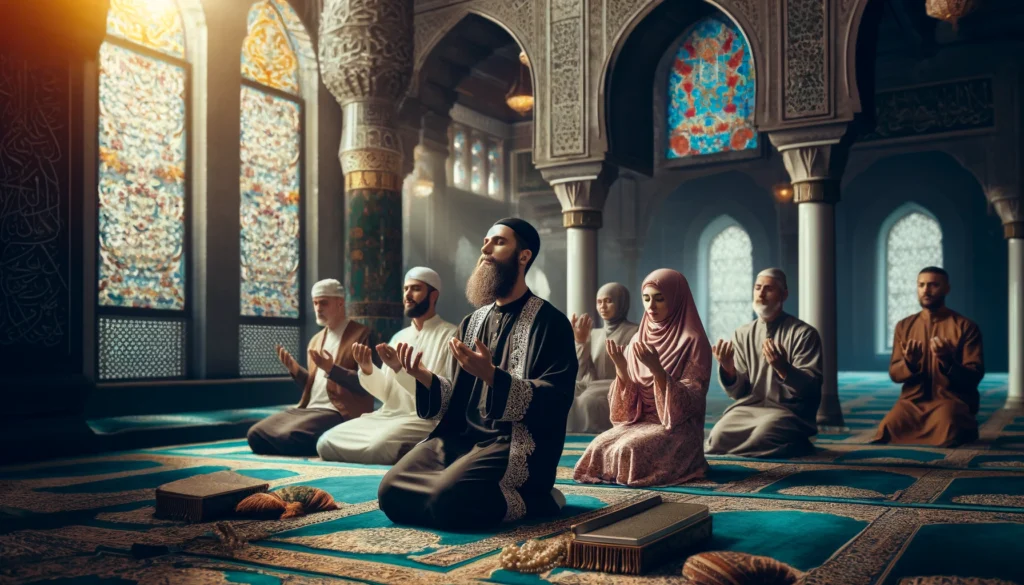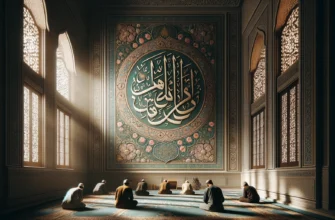In the cosmic vending machine of life, duas are the coins we toss in, hoping for a snack-sized miracle or just a bit of celestial guidance. But what are duas, you ask? Simply put, they’re prayers or supplications in Islam, lifted from the heart to the divine hotline. It’s like sending a spiritual text message directly to The Management, hoping for a “Seen” or, even better, a “Reply.” So, why make duas? Beyond the obvious “I want good stuff to happen,” there’s a buffet of benefits waiting for those who take a moment to whisper to the winds. Let’s unwrap these spiritual gifts, with a twist of humor and a sprinkle of philosophy, because why should the soul’s food be bland?

- 10 Benefits of Making Duas
- Stress Relief – Dialing Down Life’s Volume
- Spiritual Connection – You’ve Got a Friend Above
- Clarity and Focus – Clearing the Mental Clutter
- Increased Patience – The Waiting Game’s Secret Weapon
- Emotional Support – A Shoulder Above the Clouds
- Hope and Optimism – Keeping the Faith Flame Flickering
- Moral Compass – Navigating the Life’s Waves
- Gratitude – Counting Your Celestial Blessings
- Personal Accountability – The Soul’s Mirror
- Manifesting Reality – Speak, and You Shall Find
- 10 Facts About Duas
- Summary: The Soul’s Speed-Dial
- FAQ (Frequently Asked Questions About Duas)
- Why is it important to have a dua?
- What are the effects of dua?
- How does Allah respond to dua?
- How do I get my dua 100% accepted?
10 Benefits of Making Duas
Stress Relief – Dialing Down Life’s Volume
Making duas helps turn the static noise of stress into a serene silence. It’s like having a spiritual spa day where you get to unload your worries onto a higher power. Think of it as cosmic therapy, but without the hefty bill.
Spiritual Connection – You’ve Got a Friend Above
Duas strengthen your connection with the divine, which in philosophical terms, is like ensuring your Wi-Fi signal is strong when you really need that existential download of wisdom.
Clarity and Focus – Clearing the Mental Clutter
By articulating your needs through duas, you clarify what you truly want from life, akin to spiritual spring cleaning. It’s about sweeping away the cobwebs in the corners of your consciousness.
Increased Patience – The Waiting Game’s Secret Weapon
Duas teach patience; after all, you’re playing a heavenly waiting game. It’s the divine equivalent of “Please hold, your call is important to us.”
Emotional Support – A Shoulder Above the Clouds
Feeling down? A dua can be your direct line to emotional support. It’s like calling your spiritual support team when your soul’s basement floods with the rains of despair.
Hope and Optimism – Keeping the Faith Flame Flickering
Duas fuel the flames of hope and optimism. Each prayer is a spark that says, “Hey, maybe things can get better,” which is a lot healthier than doom-scrolling through life.
Moral Compass – Navigating the Life’s Waves
Asking for guidance through duas helps fine-tune your moral compass. It’s like updating your spiritual GPS to avoid the potholes on the highway to enlightenment.
Gratitude – Counting Your Celestial Blessings
Making duas isn’t just about asking; it’s also about thanking. This fosters a spirit of gratitude, which, in a world where we often focus on what’s missing, is like remembering you have leftovers in the fridge – a small but satisfying discovery.
Personal Accountability – The Soul’s Mirror
Duas involve a moment of reflection, a chance to look in the mirror and ask, “Am I really the protagonist in my own life story?” It’s about owning your narrative, bloopers and all.
Manifesting Reality – Speak, and You Shall Find
Finally, making duas is about manifesting your reality. It’s the spiritual version of “ask, and you shall receive,” or at least, “ask, and you’ll feel better for putting it out there.”
10 Facts About Duas
- Duas can be made at any time, in any place – from the battlefield to the bathroom.
- They are not restricted by language; you can make a dua in whatever tongue twists best for you.
- There’s a dua for practically every moment of life, from waking up to going to sleep, proving life’s a prayer, keep on whispering.
- In Islam, certain times are considered more powerful for making duas, like during rainfall or at the Tahajjud (late night prayer).
- Duas are part of the daily life of a Muslim, integrated into rituals and routines like a spiritual seasoning.
- Prophet Muhammad is reported to have said that duas are the essence of worship.
- Making duas can also be a communal activity, showing that even in prayer, there’s strength in numbers.
- There are specific duas that are recommended for various emotions and situations – from joy and gratitude to fear and grief.
- Believers hold that angels say “Ameen” to the duas made by someone fasting, giving it a divine boost.
- Duas remind us that, no matter the chaos of the cosmos, there’s always a moment for a personal pause.
Summary: The Soul’s Speed-Dial
In the grand narrative of life, making duas is like having a speed-dial to the divine. It’s not about the guarantees; it’s about the gesture. Whether you’re a seasoned spiritualist or a curious wanderer, the act of making a dua is a quiet revolution against the noise of existence, proving that sometimes, the best way to answer life’s questions is simply to ask.
FAQ (Frequently Asked Questions About Duas)
Why is it important to have a dua?
Dua, or supplication, holds a significant place in Islamic practice as it represents a personal, communicative connection between a believer and Allah. It’s considered the essence of worship because it reflects humility, reliance, and total submission to Allah. Through dua, you express your deepest needs, hopes, and gratitude, thereby reinforcing your faith and reliance on the divine. It’s not just about asking for things; it’s a spiritual practice that enhances self-reflection and spiritual growth.
What are the effects of dua?
The effects of dua can be profound and multifaceted. Spiritually, it brings a believer closer to Allah, providing a sense of peace and contentment. It can lead to increased patience, resilience, and perseverance, especially during times of hardship. Psychologically, the act of making dua can relieve stress and anxiety, as it involves handing over one’s worries to a higher power. Socially, it can foster a sense of community and unity as people come together to pray for common causes.
How does Allah respond to dua?
In Islam, it is believed that Allah always responds to the dua of the supplicant, but the response may not always align with the seeker’s immediate desires. The response to dua can come in several forms: Allah might grant the dua as requested, delay it for a more suitable time, replace it with something better, or remove a harm that might have befallen the individual. This belief underscores the idea that Allah is all-knowing and always responds in the most wise and merciful way.
How do I get my dua 100% accepted?
While no human can guarantee that a dua will be accepted in the exact form they desire, certain practices can increase the likelihood of a positive response. These include:
Sincerity: Ensure that your heart is pure and your intentions are sincere when you make dua.
Good Deeds: Performing good deeds and living a righteous life increases the likelihood of your duas being accepted.
Right Timing: Making dua during certain times believed to be more auspicious, such as during the last third of the night, immediately following the prescribed prayers, or on Fridays.
Patience: Avoid hastiness and maintain faith in Allah’s timing and wisdom, never despairing of His mercy.







